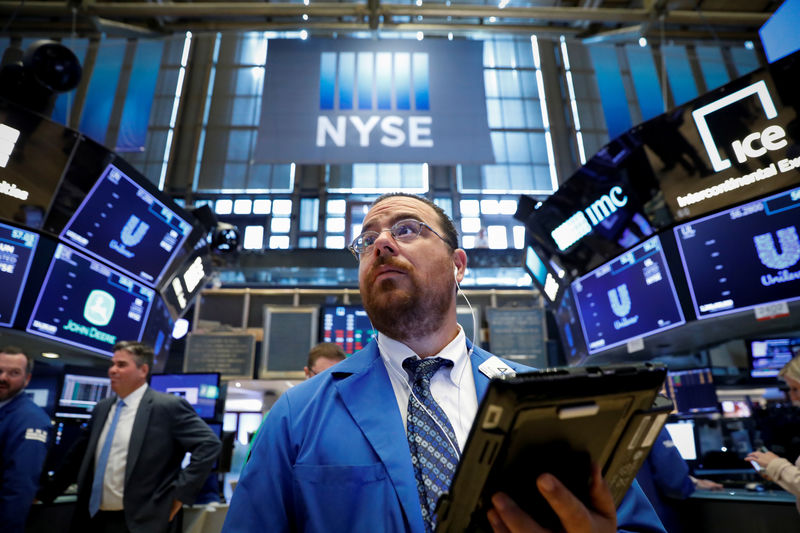This post was originally published on this site

Investing.com – The S&P 500 edged higher Wednesday, as a jump in tech on falling U.S. bond yields and better-than-expected earnings from Microsoft and Google’s Alphabet offset weakness in energy.
The S&P 500 rose 0.16%, though remained below its all-time high of 4,598.36. The Dow Jones Industrial Average slipped 18%, or 63 points, while the Nasdaq was up 0.8%.
Technology was lifted by the fall in Treasury yields, with the 10-year yield dropping below 1.6%, while a climb in Microsoft and Alphabet also supported the sector.
Alphabet (NASDAQ:GOOGL)’s third-quarter earnings beat was driven by strong performance in its digital advertising search business, which was less vulnerable to Apple (NASDAQ:AAPL)’s privacy changes. Its share price was up 6%.
“Search [was] the clear beneficiary from Apple’s ATT [App Tracking Transparency], and the least exposed to mobile tracking and measurement issues,” Wedbush said in a note.
Microsoft (NASDAQ:MSFT) delivered fourth-quarter guidance that topped expectations as its cloud business Azure continued to impress, growing more than 50% in the third quarter. Its shares were up about 4%.
Twitter (NYSE:TWTR) plunged 10% after reporting third-quarter earnings that fell short of Wall Street estimates.
The upside in the tech offset weakness in cyclicals as energy and financials stumbled.
Energy fell more than 1% as oil prices were pressured by expectations for a jump in global crude supplies from Iran as Tehran and European Union agreed to resume talks on to revive the 2015 nuclear deal before month-end.
Oil prices were also pushed lower by data showing a larger than expected build in the U.S. weekly crude stockpiles.
Crude inventories rose by 4.3 million barrels for the week ended Oct. 24, well above analysts’ expectations for a build of 1.9 million barrels.
Energy, which up about 16% year to date, likely has further room to run.
“I’m bullish on energy as underinvestment in energy projects should continue to support the supply and demand imbalance, substantially pushing crude prices higher,” Aptus Capital Advisors portfolio manager David Wagner told Investing.com in a recent interview.
“When you couple that with energy firms’ plans of returning capital shareholders, I just don’t see energy as being an underperformer,” Wagner added.
Financials were dragged lower by a 7% slump in Capital One Financial (NYSE:COF) as the payment company’s better-than-expected results were offset by concern over rising expenses amid a ramp-up in marketing spend.
Still, Wall Street analysts remained constructive on the Capital One, forecasting the ramp-up in marketing to lead to further growth.
“We view [higher marketing expenses] as positive driver future growth and a sign that management is becoming more confident in the outlook, though it is a near-term expense headwind,” RBC said in a note.
Falling banking stocks also weighed on financials as Treasury yields slipped as yield curve continued to flatten.
Boeing (NYSE:BA), meanwhile, fell 1% after third-quarter results fell short estimates as the rebound in 737 Max demand was offset by production delays of its 787 Dreamliner jets as the aircraft manufacturing continues to address manufacturing flaws.
On the economic front, durable goods orders for September were better than expected amid smaller than expected decline in aircraft and autos orders.
“Headline durable goods orders were depressed by declines in the civilian aircraft and autos components, but both were smaller than we expected. Behind the headline noise, the 0.8% jump in core capital goods orders – the biggest since June – is very encouraging,” Pantheon Macroeconomics said in a note.


